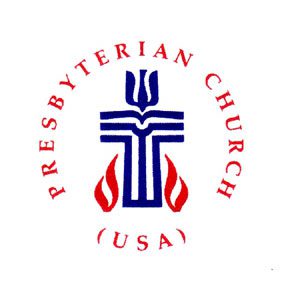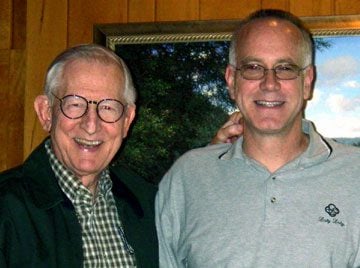In a few days, the Presbyterian Church (U.S.A.) will officially revise its ordination standards. Voting in PC(USA) regional bodies (presbyteries) now makes this change inevitable. Newspaper headlines will say things like: “PC(USA) Endorses Gay Ordination.” This is true in a way, but not entirely true either, because no church in the PC(USA) will be compelled to accept actively gay leaders. What is true is that my denomination has voted to change our governing rules in the Book of Order in a way that changes our understanding of sexual faithfulness and biblical authority. Here’s what we have voted to say concerning ordination standards in G-6.0106b:
Standards for ordained service reflect the church’s desire to submit joyfully to the Lordship of Christ in all aspects of life (G-1.0000). The governing body responsible for ordination and/or installation (G-14.0240; 14.0450) shall examine each candidate’s calling, gifts, preparation, and suitability for the responsibilities of office. The examination shall include, but not be limited to, a determination of the candidate’s ability and commitment to fulfill all requirements as expressed in the constitutional questions for ordination and installation (W-4.4003). Governing bodies shall be guided by Scripture and the confessions in applying standards to individual candidates.
 Out of context, just about any Christian would say this sounds great. What could be wrong with submitting joyfully to the Lordship of Christ in all aspects of life? What’s the matter with having governing bodies determine fitness for ordination? Who would object to having these governing bodies “guided by Scripture”? What is the big deal here? Is this a tempest in a teapot?
Out of context, just about any Christian would say this sounds great. What could be wrong with submitting joyfully to the Lordship of Christ in all aspects of life? What’s the matter with having governing bodies determine fitness for ordination? Who would object to having these governing bodies “guided by Scripture”? What is the big deal here? Is this a tempest in a teapot?
Unfortunately, it is not. You can only understand the new language of G-6.0106b in light of the language that will be removed. Here’s how the section reads right now:
Those who are called to office in the church are to lead a life of obedience to Scripture and in conformity to the historic confessional standards of the church. Among these standards is the requirement to live either in fidelity within the covenant of marriage between a man and a woman (W-4.9001), or chastity in singleness. Persons refusing to repent of any self-acknowledged practice which the confessions call sin shall not be ordained and/or installed as deacons, elders, or ministers of the Word and Sacrament.
Once the Book of Order is changed, the PC(USA) will no longer require ordained church leaders “to live either in fidelity within the covenant of marriage between a man and woman, or chastity in singleness.” In other words, a governing body will have the freedom to ordain into leadership a person who is and who intends to be sexually active outside of marriage, if that governing body believes this to be acceptable. This allows for the ordination, not only of gay and lesbian people, but also of straight people who are sexually involved outside of marriage. For now, no church elder board or presbytery will be compelled to ordain in a manner contrary to conscience. But every governing body will be free to decide for itself what it expects of its leaders in terms of their sexual practice, and this means some Presbyterian churches and presbyteries will choose to ordain people who are sexually active outside of marriage.
This is a matter of serious concern to those of us who believe that the Bible teaches that sex belongs within marriage and that leadership in the church is reserved for those who intend to live according to biblical teachings. But I am actually more distressed by the way our new paragraph speaks of how we are to regard biblical authority over our personal and corporate life. Until now, we have said “Those who are called to office in the church are to lead a life of obedience to Scripture . . . .” Now we will say “Governing bodies shall be guided by Scripture. . . .” Nowhere do we call individual leaders or governing bodies to obey Scripture. Guidance implies far less than obedience. One can be guided by something most of the time, but not all of the time. One can be guided by something except when one believes that it is wrong. The move from “obedience” to “guidance” suggests a major change in our official understanding of biblical authority, one that appears to put Scripture on a par with other sources of guidance.
Presbyterians will differ widely in their responses to the imminent change in the Book of Order. Those who have seen the ordination of gay and lesbian people as an issue of justice will celebrate a victory in a more than thirty-year long battle. Those who have sought to uphold biblical standards for ordination will be grieved. Some of these folks will no doubt leave the PC(USA). Others will stay in the denomination as they continue to serve the Lord and to seek the peace, unity, and purity of the church.
I am in that latter category. Although the official position of my denomination has shifted in a direction I don’t affirm, I am still free to articulate and live by my convictions with respect to sexuality and ordination. As long as this does not change, I will not be compelled to leave the PC(USA) for reasons of conscience.
I know that many people will disagree with my decision and I understand their consternation. I also respect those who believe that faithfulness to God means that they must withdraw from the PC(USA). But I am trying to be faithful to Scripture as I understand it, and such faithfulness includes “making every effort to maintain the unity of the Spirit in the bond of peace” (Ephesians 4:3). I want to continue to work with my Presbyterian brothers and sisters to learn what it really means “to submit joyfully to the Lordship of Christ in all aspects of life.”
Although I am saddened by the way our Book of Order will soon be changed, there is still much in that book that is wonderfully expressive of biblical truth. In fact, the most basic and crucial statements in the Book of Order remain intact. Let me close by quoting several of these that come from the foundational opening chapter. They are, as much as anything, what keep me in the PC(USA).
All power in heaven and earth is given to Jesus Christ by Almighty God, who raised Christ from the dead and set him above all rule and authority, all power and dominion, and every name that is named, not only in this age but also in that which is to come. God has put all things under the Lordship of Jesus Christ and has made Christ Head of the Church, which is his body. . . .
It belongs to Christ alone to rule, to teach, to call, and to use the Church as he wills, exercising his authority by the ministry of women and men for the establishment and extension of his Kingdom. . . .
Insofar as Christ’s will for the Church is set forth in Scripture, it is to be obeyed. . . .
In affirming with the earliest Christians that Jesus is Lord, the Church confesses that he is its hope and that the Church, as Christ’s body, is bound to his authority and thus free to live in the lively, joyous reality of the grace of God. (Excerpts from G-1.0100).
_____________________________________
P.S. If you’re looking for a more specific response to the change in the Book of Order, let me refer you to a letter from Presbyterians for Renewal. This biblically-based organization in the PC(USA) expresses well what is in my own mind and heart. I am grateful for the leadership of PFR in this challenging time.
P.P.S. If you’re looking for other things I have written about this PC(USA) crisis, you might check out the following:
The End of the Presbyterian Church (U.S.A.)? (2006)
The End of the Presbyterian Church (U.S.A.)? Revisited (2008)











